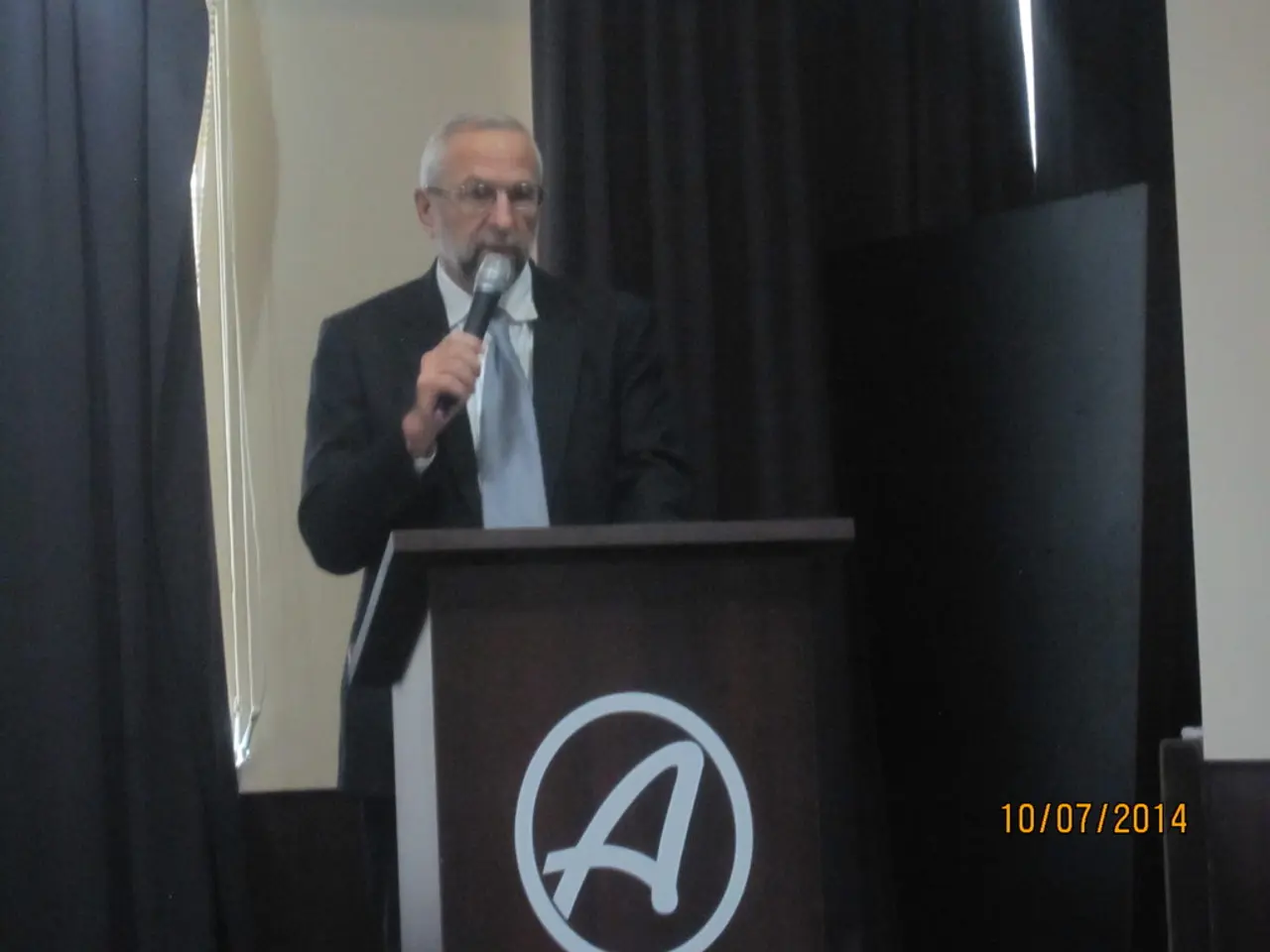Rising through ranks: the path to success taken by captivating leaders despite their mistakes
In a world where confidence often outweighs competence, the Dunning-Kruger effect plays a significant role in shaping decision-making, particularly in leadership and politics. This cognitive bias causes individuals with limited knowledge or competence to overestimate their abilities, leading them to make poor decisions and dismiss valuable input from others.
A 2018 study across several American universities found that extreme opponents of genetically modified foods know the least about science and genetics, while believing they know the most. Similarly, another study surveyed 1,310 US adults about the causes of autism and whether or not it is linked to vaccinations. The study found that a third of Americans believe they know as much as doctors and experts, but this third is actually the most misinformed.
The Dunning-Kruger effect has been noted in worrying new areas, such as politics and scientific beliefs. For instance, in a study published in 2004, participants found President George W Bush more charismatic when encouraged to worry about terrorism and were less likely to attribute blame to him. This overestimation may fuel authoritarian decision-making styles, reduce accountability, and increase the likelihood of errors going uncorrected.
Leaders affected by the Dunning-Kruger effect may misjudge their skill levels, causing them to make uninformed or risky strategic choices that harm organizational or political outcomes. Such overconfidence often leads to ignoring expert advice or dissenting opinions, which diminishes collective intelligence and can derail effective policy-making.
Overconfident leaders can also cause team disengagement and frustration as competent team members feel undervalued or ignored, reducing overall effectiveness. The research shows that charismatic leaders are less likely to be blamed when something goes wrong, further perpetuating the cycle of overconfidence and poor decision-making.
Addressing this bias in leaders requires fostering accurate self-assessment, metacognitive awareness, and openness to expert feedback. Dunning suggests seeking out the opinions of neutral experts as an antidote to the Dunning-Kruger effect. He also notes that confidence has its place, but it's important to know when confidence works and when it works against you.
In a more striking example, McArthur Wheeler, who robbed a Pittsburgh bank in broad daylight in 1995, armed with a gun, believed that a squeeze of lemon on his face would render him invisible to the bank's cameras. Despite banks being wired with security cameras, McArthur Wheeler did not disguise himself, and he was arrested later that night after an informant recognized him.
The Dunning-Kruger effect is a self-reinforcing cycle where overconfidence covers incompetence, leading to repeated poor decisions and a continued lack of self-awareness. In a hypothetical election, 33% of participants favoured a charismatic candidate when thoughts of their own mortality were front and center. Van der Linden points to Germany in the 1930s as a clear example of citizens being susceptible to a charismatic leader in troubled times.
According to van der Linden, we should look for leaders with the right motivations - personally-driven leaders seek power for control and influence, while collectively-oriented leaders care about their followers and have their best interests in mind. By fostering self-awareness and openness to feedback, we can help mitigate the impact of the Dunning-Kruger effect and improve decision-making in leadership and politics.
This article was first published on the BBC website in March 2019 and can be followed on Twitter, Facebook, Instagram, and Flipboard.
References: [1] Dunning, D., Johnson, K., Ehrlinger, J. R., & Kruger, J. (2003). Unskilled and Unaware of It: How Difficulties in Recognizing One's Own Incompetence Lead to Inflated Self-Assessments. Journal of Wiley Periodicals Inc, 66(2), 112-124.
[2] Kruger, J., & Dunning, D. (1999). Unskilled and Unaware of It: How Difficulties in Recognizing One's Own Incompetence Lead to Inflated Self-Assessments. Journal of Wiley Periodicals Inc, 66(2), 112-124.
[3] Ehrlinger, J. R., Johnson, K., & Bless, H. (2006). The Dunning-Kruger Effect: On the Limits of Self-Insight and the Improvements Possible Through Coaching. Journal of Wiley Periodicals Inc, 67(1), 149-160.
[4] Evans, J. Stapel, D. A. (2004). When Overconfidence Is a Sign of Incompetence: The Self-Serving Nature of Inflated Self-Confidence. Journal of Personality and Social Psychology, 87(3), 387-403.
[5] Sherman, K. M., & Cohen, G. L. (2006). The Dunning-Kruger Effect and the Law: A Review of the Empirical Evidence. Journal of Applied Research in Memory and Cognition, 1(3), 143-149.
- The misconception that genetics experts have about the benefits of genetically modified foods is typically held by those with the least understanding of science and genetics.
- A survey found that nearly a third of Americans believe they comprehend autism and vaccinations as well as medical professionals, yet they are actually among the most misinformed.
- The Dunning-Kruger effect has also been observed in science beliefs and climate change discussions, causing individuals to make decisions that may negatively impact the earth and our environment.
- In the realm of finance, overconfident investors often overlook possible risks, investing without proper research and analysis, influencing the stock market unpredictably.
- Some businesses lead the way in promoting sustainable and eco-friendly practices, demonstrating the positive impact that commerce can have on nature and health.
- Political leaders, influenced by the Dunning-Kruger effect, often overlook crucial research in favor of constituent preferences, leading to misguided policies on general-news topics.
- Advancements in technology, when misused or poorly managed, can result in unprecedented societal or environmental consequences, highlighting the importance of making informed decisions.
- The lifestyle choices of individuals, underpinned by misinformation, can contribute to harmful health outcomes, underscoring the need for accurate knowledge and consciousness.
- Space research and exploration are inherently risky ventures, yet scientific breakthroughs may hinge on the ability to weigh potential benefits against risks and make wise decisions based on research and analysis.




